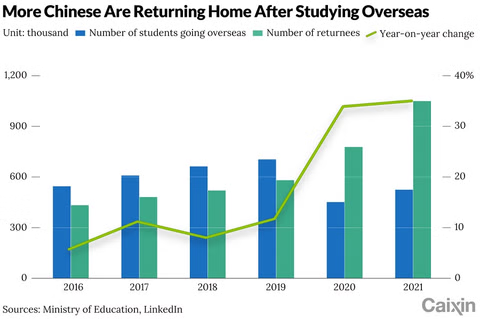
In recent years, a significant shift has occurred in the educational aspirations of China’s middle class. Once eager to send their children abroad for higher education, many parents are now reconsidering this path. The allure of foreign degrees, particularly from Western institutions, is waning due to a combination of geopolitical tensions, economic uncertainties, and evolving perceptions of educational value.
Eva Deng, a human resources director from Shenzhen, exemplifies this trend. After six years of her son’s education at an international school, she decided to enroll him in a local public junior high. Her focus shifted towards China’s top universities, especially in fields like artificial intelligence, believing that domestic institutions now offer competitive advantages. This move underscores a broader sentiment among parents who perceive studying at home as more beneficial in the current global climate.
Several factors contribute to this changing mindset. Geopolitical frictions, notably between China and Western nations, have raised concerns about the safety and acceptance of Chinese students abroad. Financial considerations also play a role; the high cost of overseas education, coupled with uncertain job prospects post-graduation, makes domestic education a more pragmatic choice. Furthermore, China’s own universities have improved in quality and reputation, offering programs that align with national development goals.
The job market for returnees with foreign degrees has also become more challenging. Employers increasingly prioritize practical experience and domestic educational backgrounds, viewing foreign degrees as less indicative of a candidate’s capabilities. This shift reflects a growing emphasis on aligning education with China’s specific economic and technological needs.
In summary, the traditional prestige associated with foreign education is diminishing among Chinese families. A combination of external pressures and internal developments is prompting a reevaluation of the best paths to success, with many now seeing domestic education as a more secure and relevant option for their children’s futures.
Can you afford not to be in China? Talk to us, we’ll help you succeed in China.